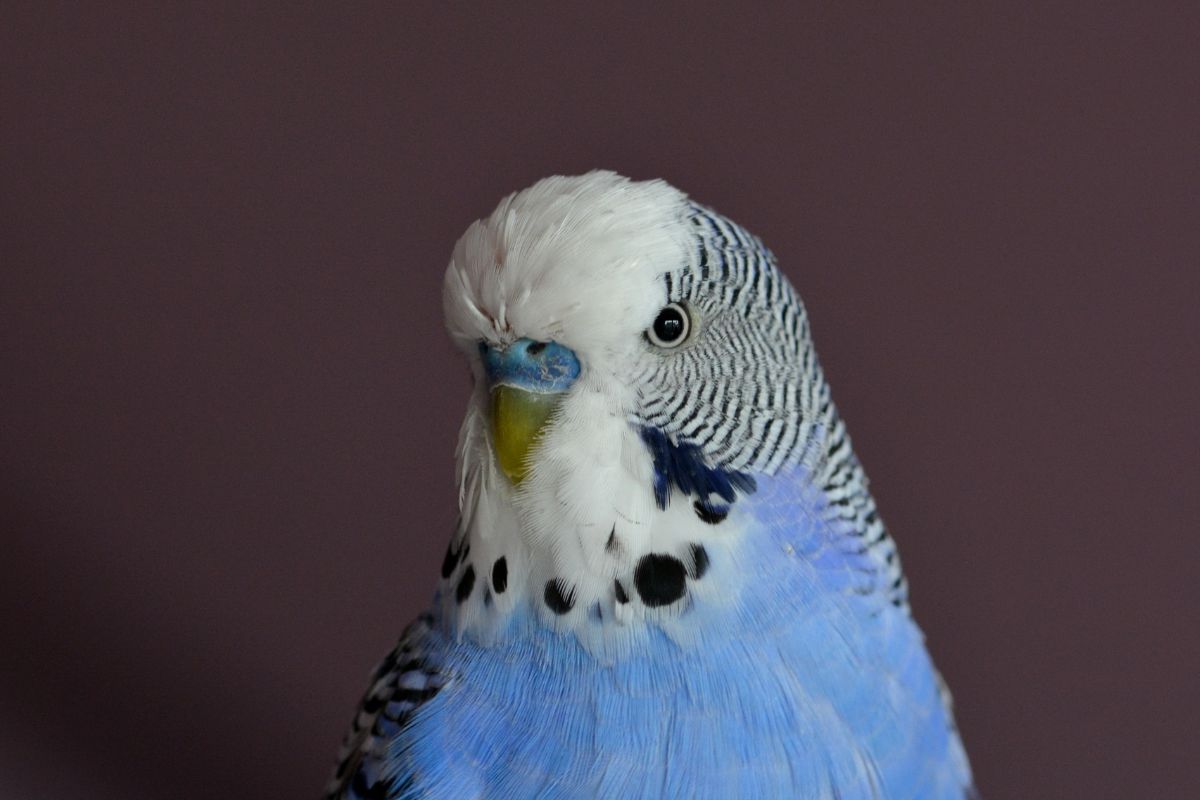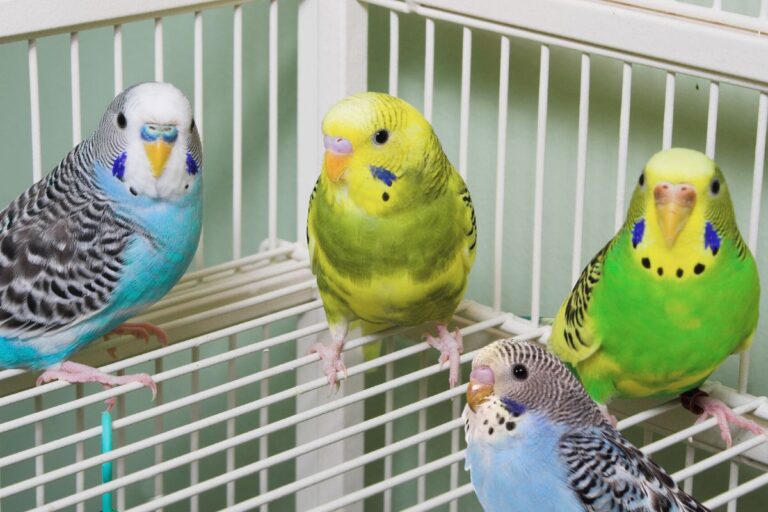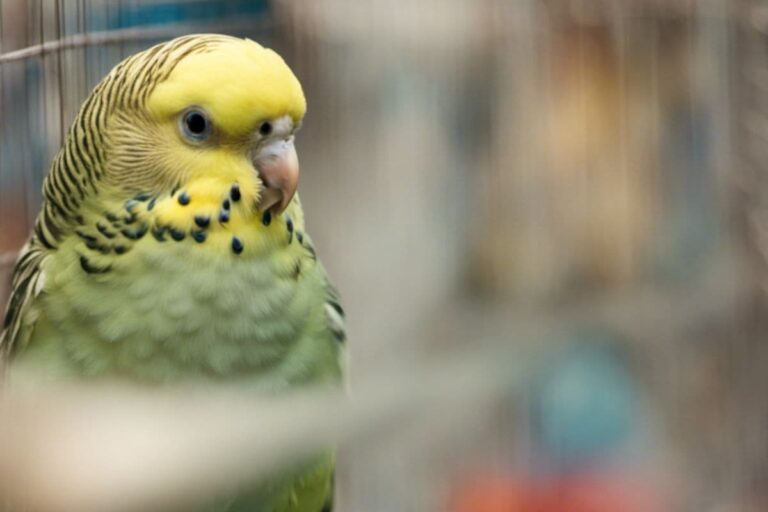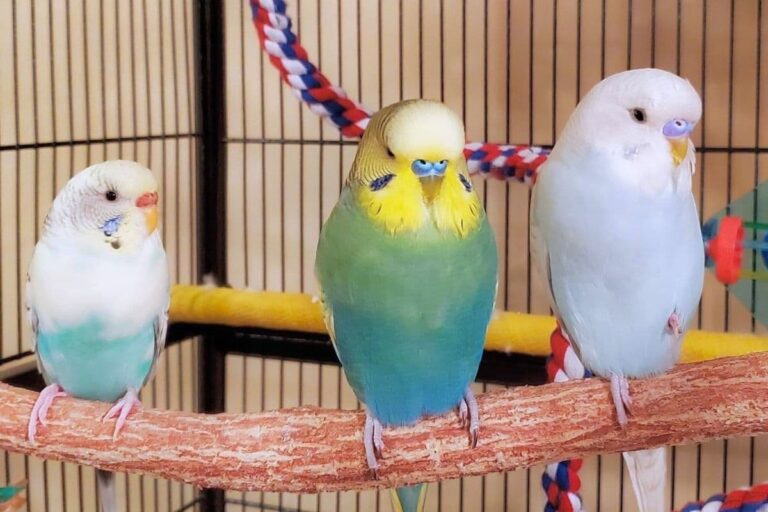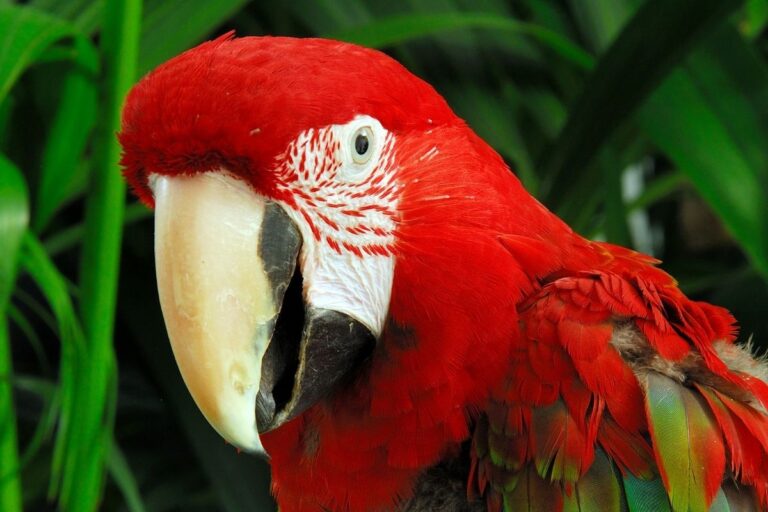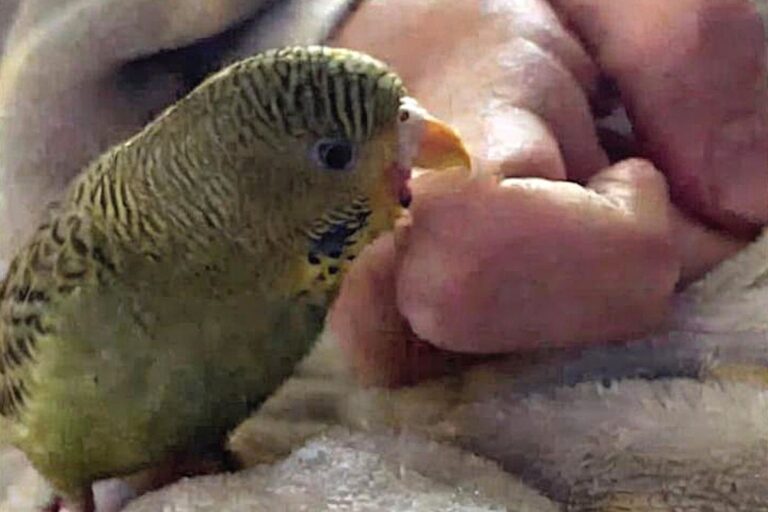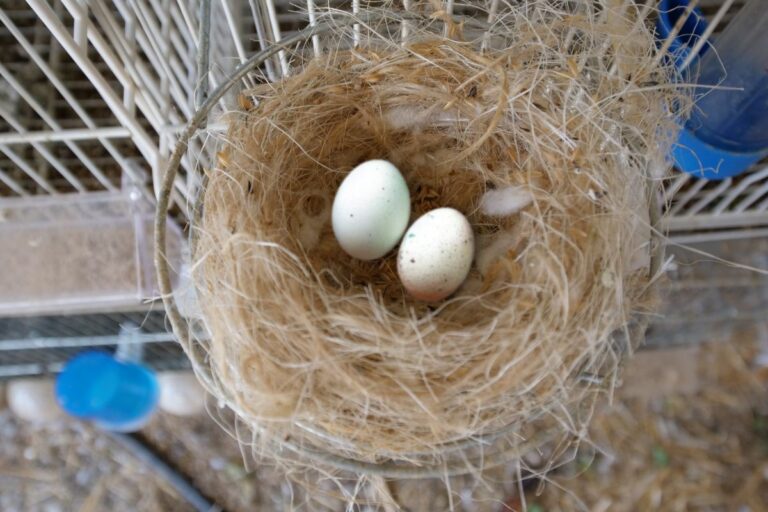Can a Parakeet Have a Stroke
Disclosure: The opinions expressed in this post are my own. This post may also contain affiliate links, which means that I will receive a commission if you decide to purchase through my links, at no additional cost to you. As an Amazon Associate, I earn from qualifying purchases.
Yes, a parakeet can have a stroke. Stroke in pet birds is not as common as it is in humans, but it does occur, and it can be both frightening and dangerous for the bird if left untreated. If you suspect your parakeet has had a stroke, or is showing any signs of neurological distress, then you should take them to an avian veterinarian or emergency veterinary hospital for an immediate examination.
What Type of Strokes are There in Birds?
There are two kinds of strokes that can affect parakeets.
Ischemic Stroke
The most common cause of stroke in birds is an ischemic stroke where there is a blood clot or blockage in the brain, which stops oxygen from reaching the brain cells. This can result in significant brain damage and even death if left untreated.
Hemorrhagic Stroke
The second type of stroke that can affect parakeets is a hemorrhagic stroke. This occurs when a blood vessel ruptures and bleeding occurs in the brain, resulting in significant damage or death. It is often caused by head trauma, but it can also be caused by high blood pressure or other medical conditions. Symptoms of this type of stroke are similar to those of an ischemic stroke , but can also include seizures and loss of consciousness.
These are the Symptoms of A Stroke to Look Out For in a Bird
Birds are very fragile creatures, and strokes can be fairly difficult to detect by the untrained eye.
Sometimes, we mistaken certain symptoms as a sign of a stroke, while other times we fail to identify the symptoms themselves.
Apart from several other factors, strokes can be a cause of death. So it’s important to understand what are some of the more common signs of a stroke in parakeets.
1. Loss of Balance or Coordination
One of the signs that your parakeet may be suffering from a stroke is the sudden loss of balance or coordination. A parakeet’s equilibrium system is very sensitive, and if its normal functioning is interrupted, this could lead to sudden difficulty walking or controlling balance or posture. Your parakeet might appear dizzy, unsteady on their feet, disoriented, and unable to keep themselves balanced in the air. They might also have trouble with their wings flapping differently than usual.
Loss of balance or coordination can occur due to many possible causes such as neurological disorders or infections; however, it can also indicate a stroke. Your vet will be able to advise you on any additional tests which might need to be done in order to gain more information about your pet’s condition and provide them with the best care possible.
2. Paralysis (Partial or Full)
Paralysis—partial or full—can occur in a parakeet if it has had a stroke. This paralysis can range from mild to severe, depending on the severity of the stroke. The loss of coordination, balance, and speech are all possibilities with partial or full paralysis due to stroke in a parakeet.
Partial paralysis is likely to affect only one side of the body. It will involve weak muscles, difficulty with movement, and general clumsiness. The bird may also be unable to fly properly or maintain its balance while perched on branches or objects.
Full paralysis affects both sides of the body and is usually immediately recognizable. Depending on where the stroke occurred in the bird’s brain, it may experience loss of feeling in different parts of its body, drooping wings, or loss of control over bodily functions such as standing or vocalizing.
3. Staggering & Stumbling Due to Weakness in One Side of the Body
Another symptom may be staggering or stumbling due to weakness in one side of their body. When this happens you’ll notice the bird struggling to stand, flapping its wings in an uneven pattern, or having difficulty walking. This can also be a sign of paralysis along the affected side of the body.
The bird may also have difficulty controlling its neck muscles and might have a tilt to one side when it stands and tries to move around; it will also find it more difficult to maintain balance in flight. Its lower leg on one side of its body may also limp as if slightly paralyzed.
4. Unable to Fly
If your parakeet lands clumsily or falls from the higher parts of its cage, it can be a telltale sign of a possible stroke, as it often results in lessened muscle control or the complete loss of flight abilities. Parakeets are natural fliers, so if you notice that yours stops flying or begins to fly erratically, this could indicate an issue that needs to be addressed urgently.
5. Sudden Changes in Behavior
Another symptom when a parakeet has suffered a stroke, is that their behavior will change suddenly. They may become disoriented or even cry out for help. Your parakeet may also display changes in personality, becoming agitated and aggressive instead of the usually sweet-natured parakeet you are used to.
6. Seizures and Tremors
Seizures and tremors are often signs that a parakeet is having a stroke. Seizures can include involuntary movements, like jerking or twitching, that last from a few seconds to several minutes. Tremors, on the other hand, are small, jerky movements of the wings and legs that happen over time and seem somewhat voluntary.
Note that a stroke is not the only cause of seizures or tremors. Other causes could be from metabolic problems like hypoglycemia or electrolyte imbalances, liver issues associated with malnourishment, exposure to toxic substances, brain tumors, trauma due to injury or lack of oxygen delivery due to heart disease.
7. Eyes Not Focusing Properly
If your parakeet is having difficulty focusing its eyes, it may be a symptom of a stroke. When parakeets have strokes, the part of the brain responsible for vision can be affected. The most common symptoms are blurred vision, not focusing properly, and eye shaking or twitching.
8. Loss of Appetite & Drinking Less Water
If you notice your parakeet refusing food or avoiding drinking water, it could be an indication that something is wrong. One of the most common signs that a parakeet may be having a stroke is a notable loss in appetite or drinking less water than usual. Parakeets need these sustenance to survive and remain healthy; sudden changes in eating or drinking habits are right cause for concern.
Factors that May Lead to Strokes In Birds
Most often, stroke-like symptoms can be caused by a variety of illnesses or environmental issues. In the case of pet birds, poor nutrition, stress, and/or exposure to toxins can all have an impact on their overall health and increase their chances of suffering a stroke. Additionally, certain species may be more prone to strokes than others due to genetic predisposition.
Here are some additional factors that may increase the risk for birds suffering from strokes.
1. Poor Diet & Nutrition
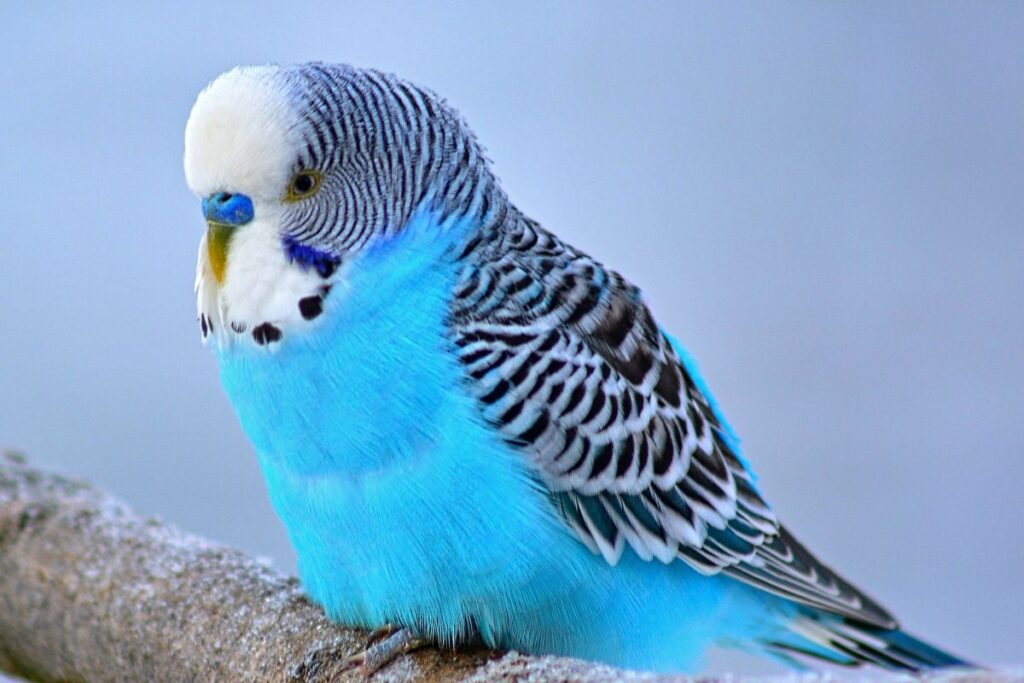
Your pet’s diet needs to be balanced and nutritious, with high-quality seeds, grains, vegetables, and fruits. A poor diet can lead to a variety of diseases including obesity, high blood pressure, and strokes.
Not providing your bird with enough fresh water can also lead to dehydration, which is another risk factor for strokes.
2. Age
Age is one of the most important contributing factors to a bird having a stroke. Older birds are more vulnerable to strokes because their bodies are not as strong and resilient as younger birds. As such, their blood vessels and arteries can become weakened or blocked off, leading to a shortage in blood flow to their brain – which can cause a stroke.
Additionally, too much flying or excessive stress can also weaken the body and put your parakeet at risk for stroke. Make sure that your parakeet gets plenty of rest and doesn’t do too much activity at once; if it does get too active be sure to provide frequent breaks for rest throughout each day.
Age-related illnesses like hypertension, diabetes, heart disease, infections, and other medical conditions may also increase your parakeet’s risk for having a stroke. Regular check-ups with an avian veterinarian will help catch any underlying health issues early on – increasing the chances of preventing a possible harmful occurrence.
3. Environmental Factors
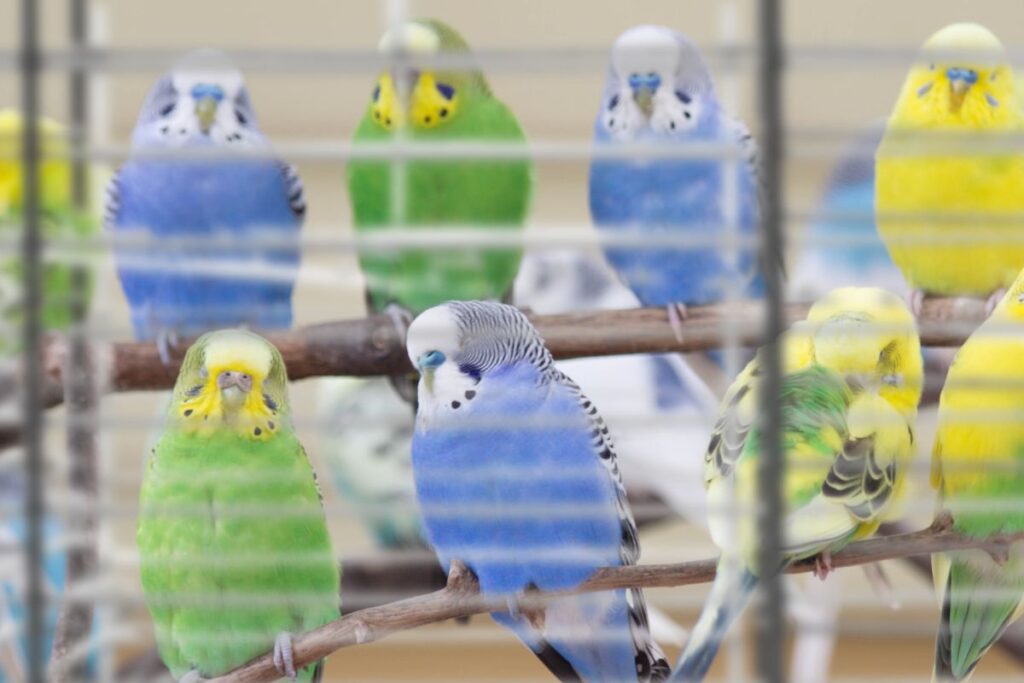
A stressful environment increases the chances of a stroke occurring. Stressors can come in many forms. Some common environmental stressors for birds include loud noises, extreme temperatures, overcrowding and lack of natural sunlight exposure.
Parakeets that don’t have enough access to fresh air and a variety of non-toxic vegetation may also be at risk. Poor diet, poor nutrition and improper vitamins or minerals can increase the chance of strokes as well.
It is important to always maintain optimum humidity levels for birds and keep their housing area clean and hygienic. Parakeets should be provided with ample room to move around while ensuring they don’t come into contact with toxins like cigarette smoke or fragrances from candles, perfumes or other hazardous materials
4. Genetic Predisposition
Parakeets can inherit certain genes from their parents that can make them more prone to suffering a stroke. If a parakeet’s parents have suffered strokes, chances are greater that the bird will experience the same fate.
In addition, if the parakeet has an underlying health condition, or one of its siblings has recently had a stroke, then these are additional tell-tale signs
5. Obesity
Birds can actually become obese if they are not fed a balanced diet and get enough exercise. Over time, eating a diet high in fat can lead to cardiac problems that may result in a stroke. Being overweight causes extra strain on the heart and other organs over time. Obese birds are predisposed to high blood pressure, poor circulation, and build-up of fatty plaque in the arteries—all of which can eventually lead to stroke-inducing clots forming in the bloodstream.
Therefore, it is important to ensure that your parakeet is getting the proper nutrition and is active. You should feed your bird a variety of healthy choices such as fruits and veggies, limit treats such as processed seeds, and make sure that the food you provide has all the essential vitamins and minerals it needs.
You should also give your bird plenty of opportunity for playtime so it can stay active and healthy.
6. Underlying Health Conditions
Underlying health conditions, such as cancer or infections (such as avian tuberculosis), may lead to strokes in birds. Since parakeets have delicate cardiovascular systems, they are often at a fairly higher risk of developing a stroke due to certain illnesses or other health challenges.
Heart disease caused by high levels of cholesterol, triglycerides and other fatty substances are yet more serious conditions which can lead to strokes and seizures in parakeets too.
What Should I Do If My Parakeet Has a Stroke?
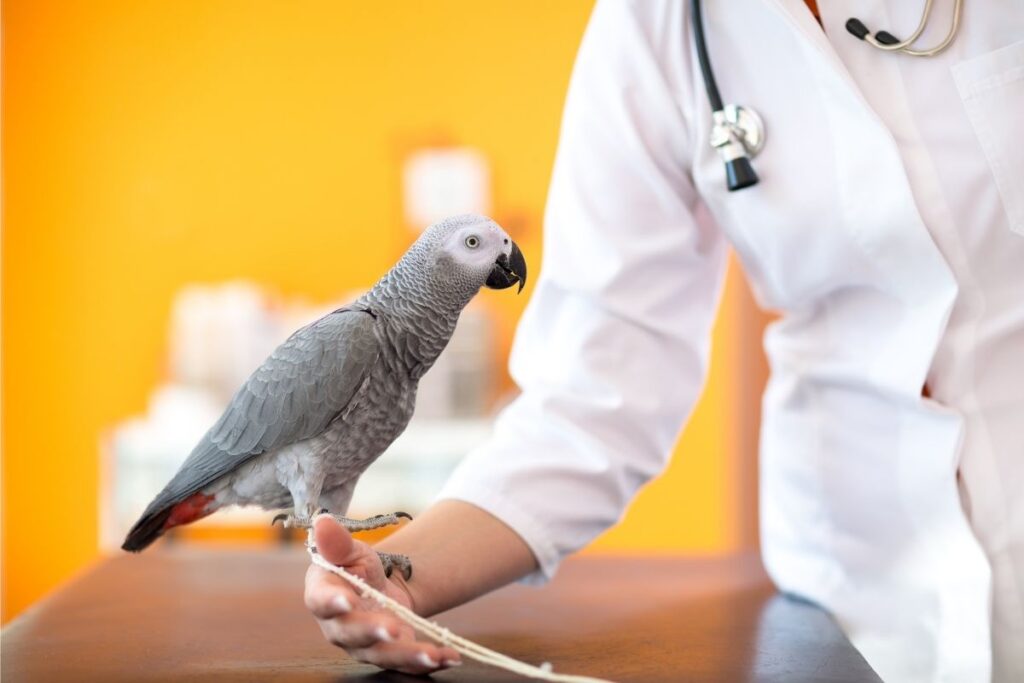
If you believe that your parakeet has had a stroke, the best thing to do is to bring them to a veterinarian for a proper diagnosis immediately.
A stroke can usually be treated with medication given by the vet. Depending on the type of stroke and how advanced it is, other treatments may include surgery or physical therapy. In some cases, the bird may need long-term care including daily attention from a vet or recovery specialist.
It’s important to monitor for any signs of another stroke or other health issue that could result from one originally stroke event. With proper medical attention and care at home, your parakeet can survive a stroke and go on living a happy life again!
Can a Parakeet Recover from a Stroke?
The answer is complicated. While strokes can be difficult to diagnose in birds, there’s both good and bad news. On the good side, some parakeets have made a full recovery from a stroke with appropriate medical care and rehabilitation. However, not all cases end so happily. Mild to severe neurological deficits can continue even after recovery from a stroke.
In general, the outlook will largely depend on the severity of the stroke that it suffered as well as the level of care and treatment it received during recovery.
What Is The Treatment For Bird Strokes?
The treatment for a bird stroke depends on the seriousness of the incident and its underlying causes. Mild stroke symptoms can sometimes be treated with cage rest, nutritional supplements, and modified diet. But if the parakeet is having difficulty breathing, seizures or disorientation, then they may need to be hospitalized and observed until their condition improves.
The avian vet will assess the overall health of your parakeet and provide appropriate treatment for its stroke. This often involves medication to reduce swelling in the brain and improve blood flow to damaged areas. Medications such as anti-inflammatories may also be prescribed to reduce any pain caused by the stroke.
Final Words
A parakeet can indeed have a stroke or other medical emergency that is similar to a stroke in humans. It’s important to recognize the symptoms of a possible medical emergency quickly so that the bird can receive necessary veterinary care right away and make a full recovery. Taking action soon may be the difference between life and death for your beloved pet parakeet!



